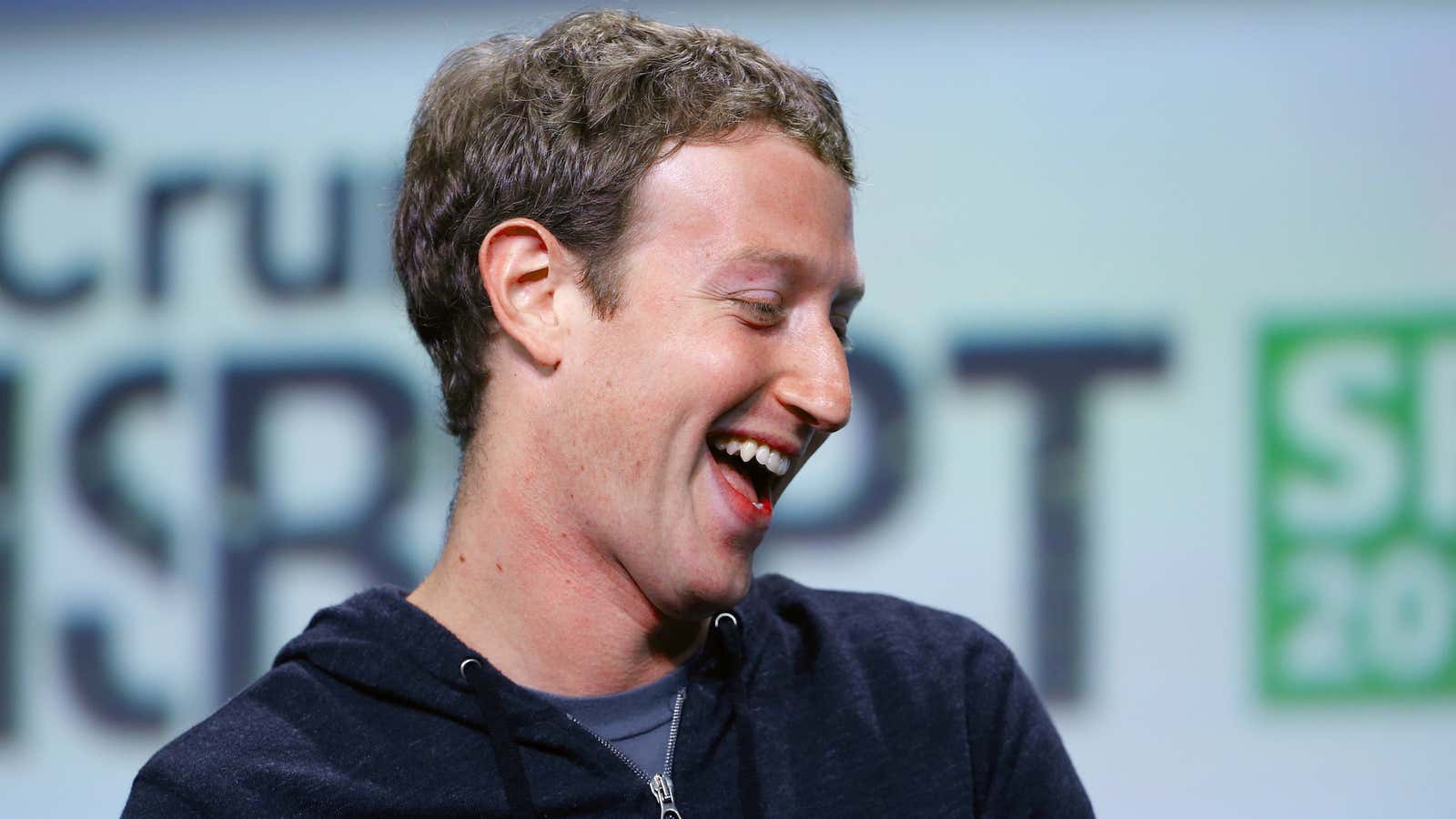Tech company valuations are becoming so inflated that some think there’s a bubble about to burst. But how do offices with a few dozen people in them get to be worth billions, and what do those numbers mean? Kyle Chayka at Pacific Standard has a good explainer on what makes a new company valuable (spoiler: it’s not the promise of future profitability):
They think really big
Successful tech startups don’t think of themselves the way you might think of them. They think a lot bigger. AirBnB (valued at $10 billion, with $250 million in revenue reported for 2013) doesn’t see itself as a short-term sublet company, or even an accommodation company, but, probably, as a general travel agency (it’s recently talked about tying in car service). Uber (valued at around $3.5 billion) doesn’t think it’s just a taxi company, but a general transportation firm, now moving into the the fast delivery of things—and sometimes kittens—as well as people.
That kind of thinking, of course, was what took Amazon from being a bookseller to being an everything-seller and is now taking it to being a cloud-computing behemoth, and that gave everyone else a license to think equally big. Startups that plan on putting fingers in every pot of their industries convince investors that they might one day dominate those industries. Their valuations represent a sort of blank cheque in anticipation of that.
They benefit from the big firms’ insecurity
The tech behemoths are doing a whole bunch of acquiring in attempts to outfox each other and absorb potential upstart rivals: Witness Facebook’s $2 billion purchase of virtual reality company Oculus, which has yet to release a single production model of its headset. Facebook may not even planning on creating a virtual-reality version of social media. Instead, it just decided that VR would be a big deal in the coming years, and decided to ride the wave. Similarly, Facebook and Google recently had a tug-of-war over Titan Aerospace, a drone manufacturer. The bigger these firms get, the more intense the competition.
Technologists are structurally obliged to be optimists
Though companies hire trained futurists, technology is still moving to fast to predict where it will go. “Value has become an abstraction because we don’t really know what kind of product is going to make the most money,” Chayka writes. “We have no idea what kind of technology will dominate the commercial landscape over the next decade, let alone century.” For companies with as much money and as much to gain—and lose—as Google, Facebook, and Twitter, it’s better to be optimistic about hyped startups than to let them slip away. Of course, this means that they know some of their acquisitions will be duds and even those that aren’t will be expensive. But it’s worth more to them to stay ahead of the curve.
